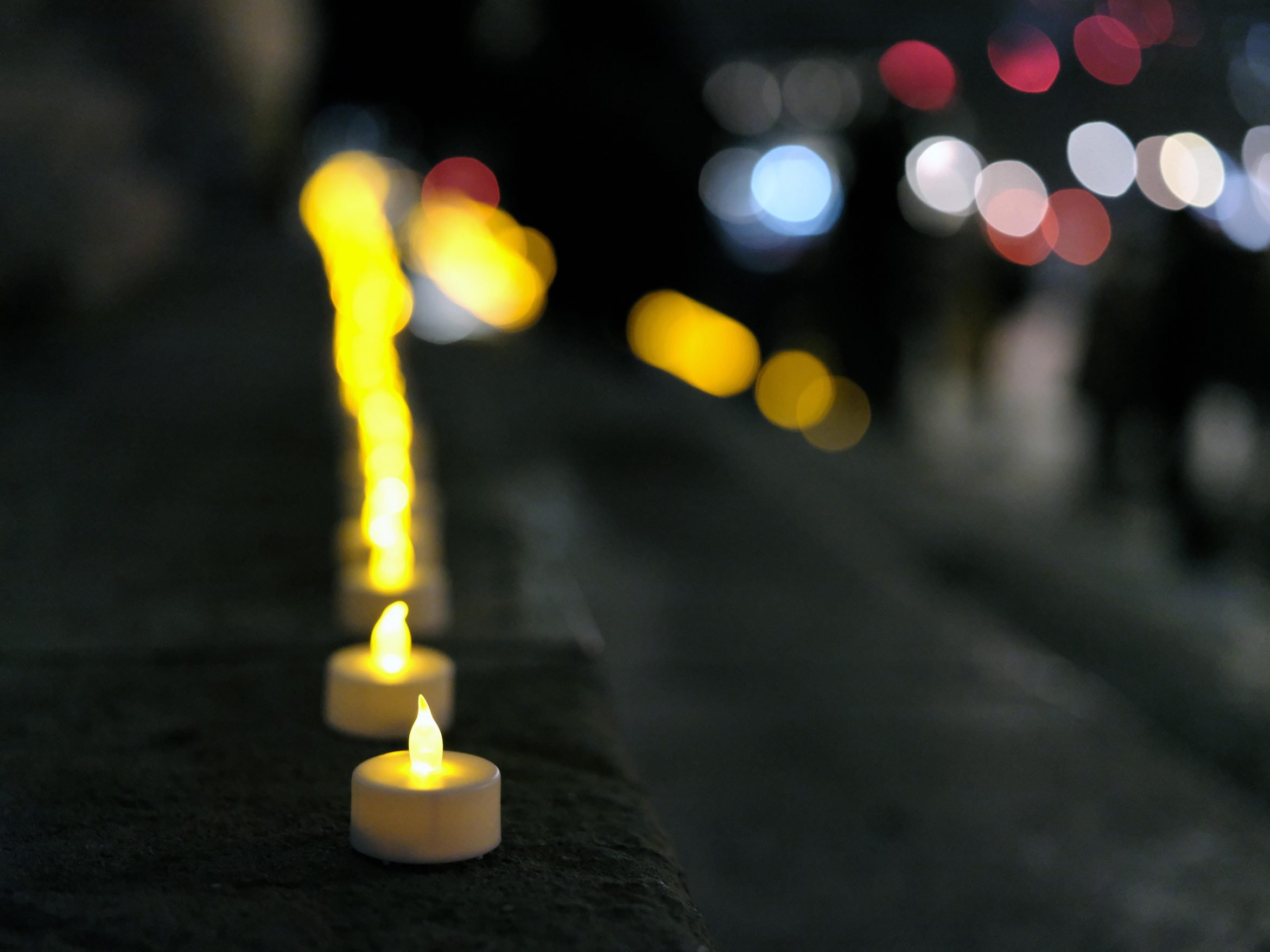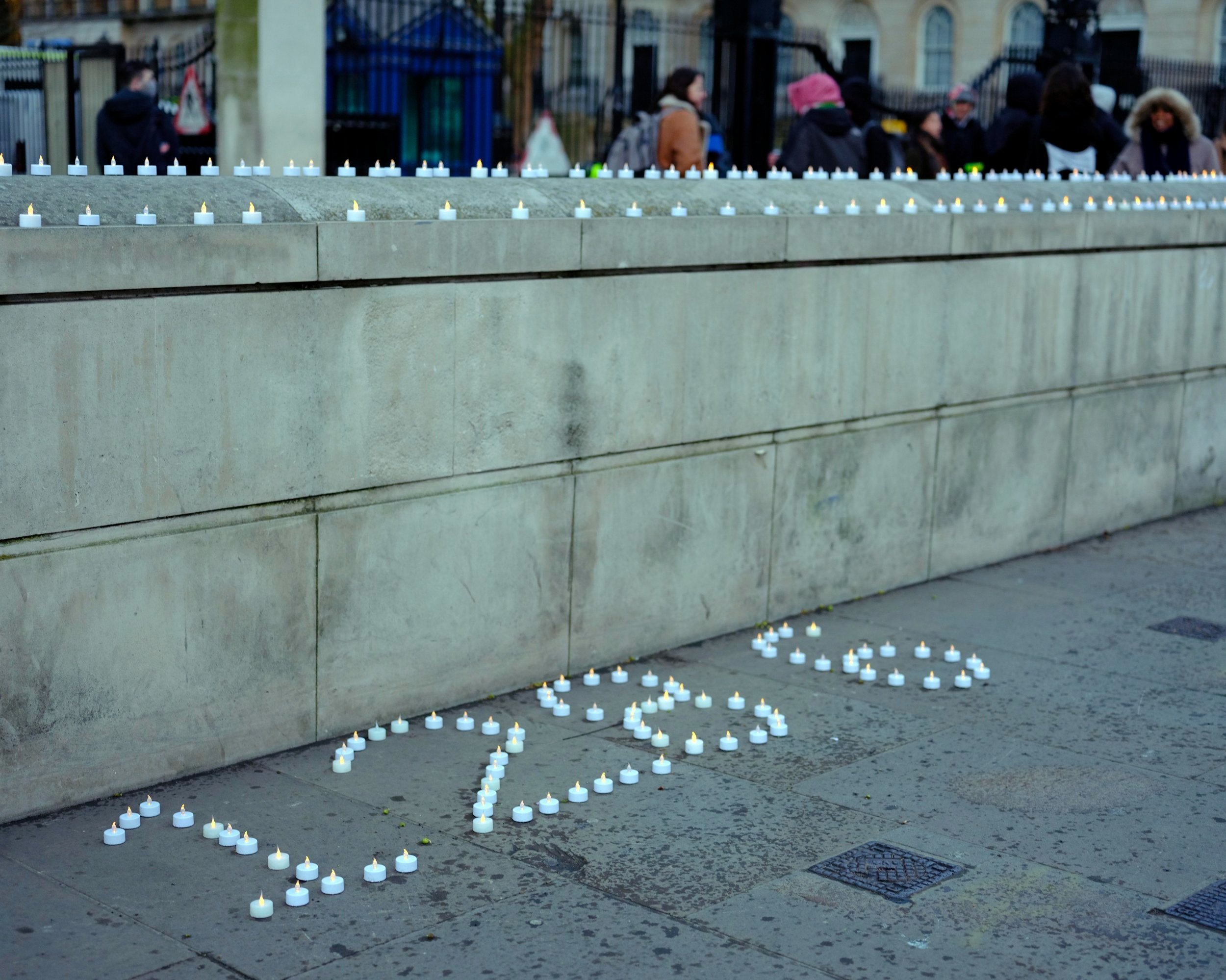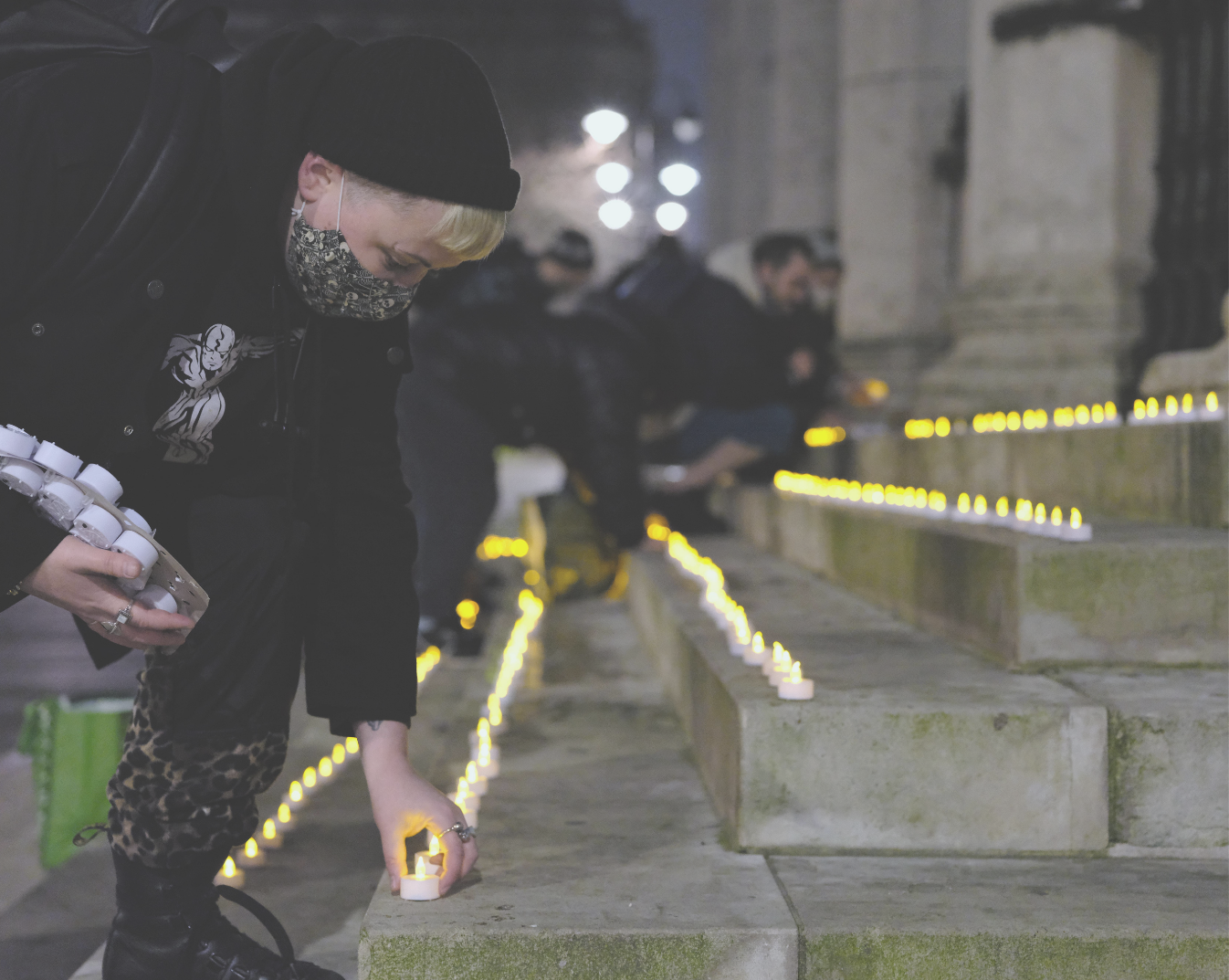
ABOUT THE DYING HOMELESS PROJECT
The Dying Homeless Project, led by Museum of Homelessness, is the only record of the deaths of people experiencing homelessness in all four UK nations; England, Wales, Scotland and Northern Ireland.
The project is a year-round investigation and online memorial to all those who died. Each October, we release our findings from the previous year and hold a vigil outside Downing Street to make the deaths and lives we are remembering visible to those in power.
Through the Dying Homeless Project, Museum of Homelessness honours those who die whilst experiencing all forms of homelessness. We do this by generating robust analysis and recommendations, presented in our annual findings report, that calls for positive action to prevent future deaths.

latest information on the deaths of people experiencing homelessness
In 2024, at least 1611 homeless people died across England, Scotland, Wales and Northern Ireland.
This was an overall increase of 9% compared to year before, when we were told about the deaths of 1476 people. For further information and analysis, please read our annual reports below.
OUR RESEARCH
We publish data and research annually, highlighting how many people die whilst homeless across the UK. In 2024, The Dying Homeless Project recorded 1611 deaths across England, Scotland, Wales, and Northern Ireland, a 9% increase on the previous year. These statistics include people sleeping rough, as well as those living in all forms of homelessness temporary and supported accommodation and other insecure settings. Each fatality is verified by a Freedom of Information Act request, Coroners’ report, dedicated homelessness organisation or family member.
Our findings for 2024 and for previous years can be downloaded below.
You can download our 2024 findings here
You can download our 2023 findings here
You can download our 2022 findings here
You can download our 2021 findings here
You can download our 2020 findings here
In 2021, we worked with Garden Court North, Inquest, Greater Manchester Law Centre, Ison Harrison and Shelter to publish a short guide to the inquest process for bereaved families.
OUR MEMORIAL PAGE
The heart of the Dying Homeless Project is our digital memorial, where we remember with love and dignity those who died. Although we aren’t made aware of all of their names, the project aims to remember and honour each and every person behind the stark and often anonymous statistics.
Our memorial page shares tributes, submitted to by family members and professionals, to remember with love the people who have died since 2017. We accept submissions to the memorial year round and you can find out how to make a tribute to someone by visiting our memorial page.
HISTORY OF THE DYING HOMELESS PROJECT
We are in the middle of an inequality crisis, with more people experiencing homelessness and destitution than any time in recent history. The social safety provided by social housing, universal healthcare and welfare benefits has been decimated. However, prior to October 2017 nobody collected data on how, and when, people affected by homelessness were dying.
The Bureau of Investigative Journalism, who started the Dying Homeless Project, documented that 800 people died whilst homeless in the UK between October 2017 – March 2019. Their work made a huge impact, giving homeless deaths a national platform for the first time. In early 2019, the Bureau concluded the investigation, but in recognition of it’s ongoing importance the Museum of Homelessness offered to continue the work.
Since that time, we have continued to tell the stories of people who have died. We continue to remember their lives and amplify calls from family members and sector allies for policy and practice changes that could prevent future deaths.
No-one should die without a safe place to call home; we will continue this work until it is no longer needed.
BBC news covered our findings
September 2020
GET INVOLVED
Year round, we draw on the findings from the project to campaign for change. We work closely with allies in local and national government, the homelessness and inclusion health sectors, radical law centres and Safeguarding Adult Boards to prevent future deaths. Where necessary, we hold those responsible to account by amplifying the voices of family members and sector allies.
If you want to learn more about the coalition and the Dying Homeless Project or to seek support about a bereavement, you can email our Strategic Lead, Gill Taylor, with any questions (gill@museumofhomelessness.org).


